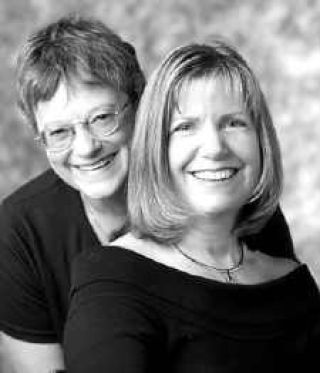SNOQUALMIE – The flap has to hit just the right spot for the objects to change. This was the problem for author Judy Schneider and illustrator Mary Konrad Weeks for their book “But Not Quite!” when they submitted the folded-page book to various publishers three years ago. They were told that while it was a good book, it was too expensive to produce because of the type of pages used. They decided, instead, to publish it themselves.
In circulation for the past two months, Weeks and Schneider have sold more than 600 copies and have books in stores throughout the country. Word-of-mouth has landed their book around Washington as well as in Chicago, California and Virginia.
“We decided that we really wanted to have this book out,” said Weeks, who along with Schneider worked with Peanut Butter Publishing in Seattle to print more than 3,000 copies of the book. They paid for the printing themselves.
The folded-page book has three drawings for each page that – as the flap is folded – change the illustrated item on the page. For example, a shoe becomes a boot, the letter “P” becomes the letter “R” and the color red becomes orange. Using letters, numbers, objects, colors and volumes, the book shows readers how items and concepts relate to other things.
“The folded page is absolutely important to this particular book,” said Weeks. “It will show one thing is almost like another thing, but not quite.”
To help focus their investment, Weeks and Schneider created Toucan Creations Inc. in 2003. Located in Snoqualmie, it offers the book, as well as workshops, conferences and resources for educators and parents nationwide through their Web site, www.toucancreations.com. Wanting to continue focusing on workshops and conferences, Weeks noted that they do not accept submissions from other writers.
Though they were both new to owning their own business, Schneider said that they enjoy being their own bosses. The name refers to a the toucan character in the book who serves as a guide, and also to the phrase “two can.”
“As in, two of us can accomplish this project,” Weeks explained.
Written more than 25 years ago, Schneider said she asked Weeks about five years ago to work on the illustrations for the book after they began collaborating on original theatrical plays for which Weeks did the cover art. Friends for more than 20 years, Weeks and Schneider both worked in education, though Schneider transitioned her background into business. In the early 1990s, Weeks went to Cornish College of the Arts to focus on illustrating. After gauging interest, Weeks and Schneider worked together to finalize the book.
Weeks and Schneider chose to self-publish their book after the rejections because they wanted to make sure the book was published the way they designed it, and that it was printed before their grandchildren had grown up. Impressing retail buyers with their work, Schneider noted that stores are reordering the book at a steady pace. Though they are working on ideas for more books, Weeks said that they do not want to self-publish again. Instead, they would like to focus their business on workshops and use this book as a catalyst for introducing various ways in which books can be used in learning.
“When I wrote it I knew it was clever and I knew it was a great teaching tool, but it’s a beautiful picture book on top of everything else.” said Schneider. “Where we go from here, we’re not really sure. It’s been really fun and it’s been really rewarding.”


